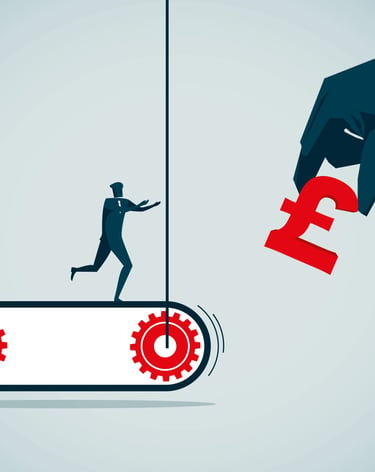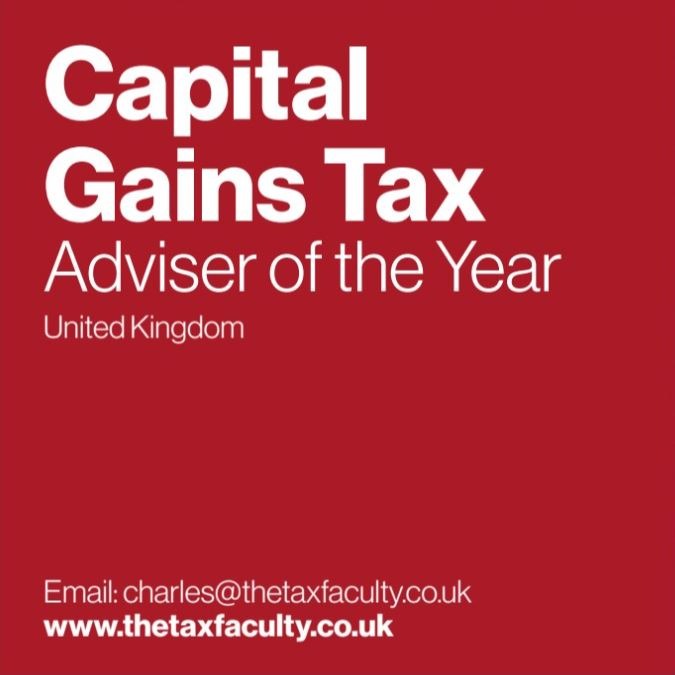The 60% Tax Trap
How 100,000 More Workers Are Losing Their Full Personal Allowance
FISCAL DRAGUK GOVERNMENTHMRCHIGH EARNERS
The Tax Faculty
12/11/20244 min read
An additional 100,000 workers have been drawn into the 60% tax bracket in the 2024/25 tax year, according to the latest HMRC figures. This surge highlights the growing impact of fiscal drag and frozen tax thresholds, leaving 885,000 taxpayers without their full personal allowance and 591,000 more seeing it partially reduced.
The trend raises significant concerns about the fairness and long-term consequences of this tax policy.


100,000 workers drawn into 60% tax bracket


The 60% tax rate applies to earnings between £100,000 and £125,140. At this threshold, the personal allowance—currently frozen at £12,570—tapers away by £1 for every £2 earned above £100,000. This creates an effective tax rate of 60% within this income band, compounded by an additional 2% National Insurance contribution.
For instance, a worker earning £125,140 pays 60% tax on the £25,140 above £100,000, leaving them with just £38 for every £100 earned in this range. What’s more, this figure doesn’t include other costs like student loan repayments, which can further reduce net earnings.
Understanding the 60% Tax Trap
The rise in taxpayers affected by the 60% tax bracket is primarily attributed to fiscal drag, where tax thresholds remain frozen while wages increase due to inflation. If the £100,000 threshold had kept pace with inflation since its introduction, it would now stand at £149,000, according to financial planners.
Fiscal drag is an effective, albeit controversial, tool for governments to increase tax revenue without formally raising tax rates. However, this approach disproportionately affects higher earners and creates what many consider a punitive tax structure.
What’s Behind the Increase?

While the 60% tax rate impacts higher earners, it raises questions about equity within the tax system. For those earning just over £100,000, the loss of the personal allowance results in a significantly higher marginal tax rate than those earning £150,000 or more. This anomaly makes the tax burden feel both arbitrary and unfair.
Moreover, the policy penalises professionals whose salaries have risen due to inflation or promotions, not necessarily due to dramatic increases in wealth. It has been suggested by some that wage inflation has pushed many people into this bracket through no fault of their own.
Why the 60% Tax Trap Feels Unfair
The Office for Budget Responsibility projects that over one million taxpayers will fall into the 60% tax trap by 2027/28 if the current freeze on thresholds remains in place. This projection underscores the increasing pressure on middle to higher earners as more people find themselves caught in this punitive tax band.
How Many Could Be Affected by 2028?
For those affected, careful financial planning can help reduce the impact of the 60% tax rate. Some strategies include:
Salary Sacrifice
By redirecting a portion of your income into pension contributions, you can lower your taxable income and retain more of your personal allowance. For example, a worker earning £125,140 who sacrifices £25,140 into a pension could save over £15,000 in income tax and National Insurance.
Charitable Donations
Donations to eligible charities can also reduce taxable income, allowing you to reclaim your personal allowance while supporting causes you care about.
Timing Income Payments
Delaying bonuses or dividend payments to the next tax year can help keep your income below the £100,000 threshold in a given year.
While these methods can offer relief, they require careful planning and may not be accessible or practical for everyone.
Strategies to Mitigate the 60% Tax Impact
Despite growing criticism, the government has extended the freeze on tax thresholds until 2028, a decision that could exacerbate the issue. Chancellor Rachel Reeves has defended the policy, citing the need for fiscal responsibility, but critics argue that it unfairly targets higher earners and stifles economic growth.
As fiscal drag continues to pull more workers into the 60% tax bracket, the debate over the fairness and efficiency of the UK tax system is unlikely to subside.
The sharp rise in workers losing their personal allowance highlights the growing burden of the 60% tax trap. While strategies exist to mitigate its impact, the policy raises valid questions about fairness and its broader implications for the UK workforce. As more taxpayers find themselves affected, pressure on the government to revisit frozen thresholds and address fiscal drag is likely to intensify.
Have you been impacted by the 60% tax trap? Speak to a tax advisor to explore your options and ensure you’re taking full advantage of available reliefs
Future Outlook
Capital Gains Tax Expertise: The Tax Faculty LLP Managing Partner Charles Tateson Named UK Capital Gains Tax Advisor of the Year 2023
The Finance Monthly Taxation Awards recognises the achievements of tax professionals from around the globe.
Winning such an award is no small feat. It is a reflection of hard work, extensive knowledge, and an ability to navigate the intricacies of the UK tax system.
Read more about Charles and the award here.



Contact Us
Contact us today on freephone 0800 0016 878 for a free consultation on all tax issues, or fill out the handy form below and we'll get back to you as soon as possible.
Alternatively, you can email us at info@thetaxfaculty.co.uk or complete the form below.
(Please note, non-UK callers may need to call 0207 101 3845 if your line cannot connect to our 0800 number)
Feel free to contact us through WhatsApp - we accept calls and messages.
Simply click the WhatsApp button below:
The Tax Faculty LLP - info@thetaxfaculty.co.uk
Call us on 0800 0016 878 for a free consultation
Copyright © 2024 The Tax Faculty LLP - All Rights Reserved


